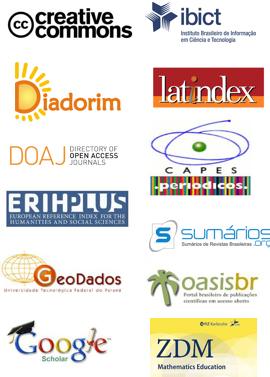FOCUSING ON DYSCALCULIA: CONTRIBUTIONS FROM A HISTORICAL-CULTURAL LENS
DOI:
https://doi.org/10.17921/2176-5634.2012v5n2p%25pResumo
This article considers issues related to developmental dyscalculia, a condition that has been associated with specific difficulties in the learning of mathematics. It begins with an attempt to locate a sample of research undertaken within Brazil, in order to identify the perspectives on dyscalculia which characterise these works. In the small number of dissertations and theses that were encountered, definitions of dyscalculia and the manner in which it is diagnosed tended to emphasise biogenetic and neurological factors in isolation from social and cultural ones. To augment this sample, we went on to search for articles published in Brazilian research journals also related to this theme, finding that they were also characterised by the same tendencies. We argue that implicit in the perspectives emphasised is a view of the developmental potential in mathematical ability as something that is largely dependent on individual brain-based factors. As we focus on the Brazilian research in the light of other research into mathematical difficulties, we highlight some limitations associated with using current neuropsychological studies and question whether dyscalculia is purely associated with a specific congenital brain-based disorder. Our explorations of this question are informed by research in the tradition of Historical-cultural psychology and we argue that, as an alternative to the current deficit model, dyscalculia might be better understood by approaches which see the development of mathematical abilities as mediated by cultural, historical and social resources, alongside biogenetic and neurological ones.Downloads
Publicado
2015-06-18
Como Citar
Kranz, C. R., & Healy, L. (2015). FOCUSING ON DYSCALCULIA: CONTRIBUTIONS FROM A HISTORICAL-CULTURAL LENS. Jornal Internacional De Estudos Em Educação Matemática, 5(2). https://doi.org/10.17921/2176-5634.2012v5n2p%p
Edição
Seção
Artigos


